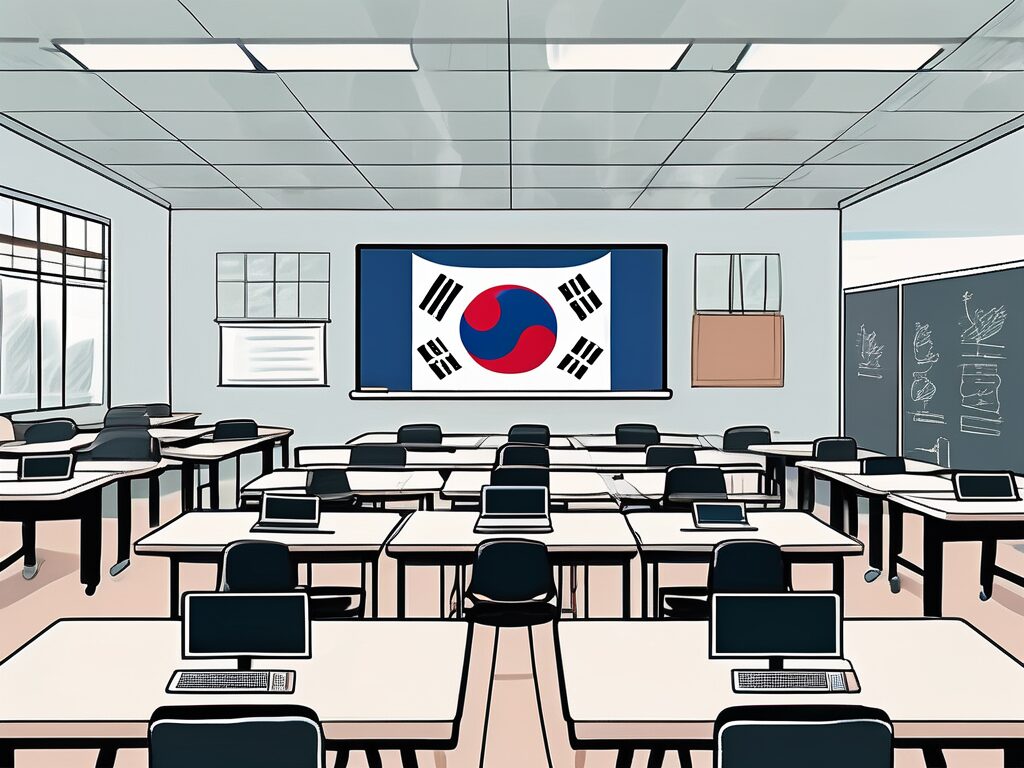South Korea, often hailed as an educational powerhouse, has a robust education system that has propelled the nation to the forefront of global rankings. However, beneath the surface of this success story, there are numerous challenges that educators and students alike grapple with on a daily basis. This article delves into the complexities of teaching and learning in South Korea, highlighting the hurdles and exploring potential solutions.
The Pressure Cooker: Academic Stress
High Stakes Testing
South Korea’s education system is notorious for its high-stakes testing, with the College Scholastic Ability Test (CSAT) being the most prominent. This one-day exam is seen as the make-or-break moment for a student’s future, dictating university admission and, by extension, career prospects. The intense pressure associated with this exam often leads to high levels of stress and anxiety among students.
Comparatively, in the UK, students have a series of exams over two years (A-Levels), which allows for a more balanced approach to assessment. The South Korean model, with its heavy reliance on a single test, is often criticised for promoting rote learning over critical thinking and creativity.
Long Study Hours
South Korean students are known for their long study hours. After a full day at school, many students attend private tutoring sessions, known as hagwons, often studying late into the night. While this dedication to education is admirable, it can lead to burnout and a lack of balance in students’ lives.
Contrast this with Finland, where students spend fewer hours in school but consistently outperform their peers internationally. This raises questions about the effectiveness of long study hours and the need for a more balanced approach to education.
Teacher-Student Dynamics
Authoritarian Teaching Style
Traditionally, South Korean classrooms have been characterised by an authoritarian teaching style, with teachers lecturing and students passively receiving information. This approach can stifle creativity, critical thinking, and student engagement.
In contrast, many Western countries have adopted a more student-centred approach, encouraging active learning and fostering a more interactive classroom environment. This difference in teaching styles can be a significant challenge for South Korean students studying abroad or for foreign teachers working in South Korea.
High Expectations and Respect for Teachers
In South Korea, teaching is a highly respected profession, and teachers are held to high standards. While this respect is beneficial, it can also create pressure for teachers to be infallible. This expectation can lead to stress and a reluctance to adopt new teaching methods for fear of making mistakes.
On the flip side, in countries like the UK, while teachers are respected, there is also an understanding that they are human and can make mistakes. This more forgiving environment can foster a culture of continuous learning and improvement among teachers.
Curriculum and Content
Focus on Rote Learning
The South Korean education system has traditionally emphasised rote learning, with students memorising facts and figures for exams. This approach can limit students’ ability to think critically and creatively, skills that are increasingly important in the modern workforce.
By comparison, countries like Australia place a strong emphasis on problem-solving and critical thinking skills in their curriculum, preparing students for a rapidly changing world.
Lack of Diversity in Subjects
South Korea’s curriculum is heavily focused on core subjects like Korean, maths, and English. While these subjects are undoubtedly important, this focus can come at the expense of other areas like the arts, physical education, and social sciences. This lack of diversity can limit students’ exposure to a range of disciplines and potentially stifle their interests and talents.
In contrast, countries like Canada offer a more diverse curriculum, providing students with a well-rounded education and fostering a love of learning across a range of subjects.
Conclusion
While South Korea’s education system has many strengths, it also faces significant challenges. The intense academic pressure, traditional teaching methods, and focus on rote learning can create a stressful environment for students and teachers alike. However, by learning from other education systems and embracing change, South Korea has the potential to address these issues and create a more balanced, engaging, and effective education system.
Empower Your Teaching Career with IPGCE
As South Korea continues to navigate the complexities of its education system, educators seeking to enhance their teaching methods and career prospects have a powerful ally in IPGCE. The International Postgraduate Certificate in Education (iPGCE) is designed to support teachers in overcoming the barriers of stringent qualifications, limited career progression, professional isolation, and the need for a deeper understanding of global education systems. By joining the UK’s #1 Teacher Training Course, you can increase your qualifications, connect with a global network of professionals, and achieve a harmonious balance between work and further education. Don’t let the challenges hold you back—Join the UK’s #1 Teacher Training Course today and take the next step in your professional journey.

